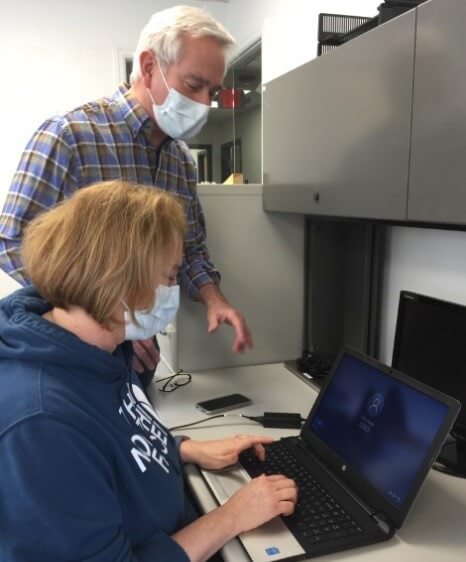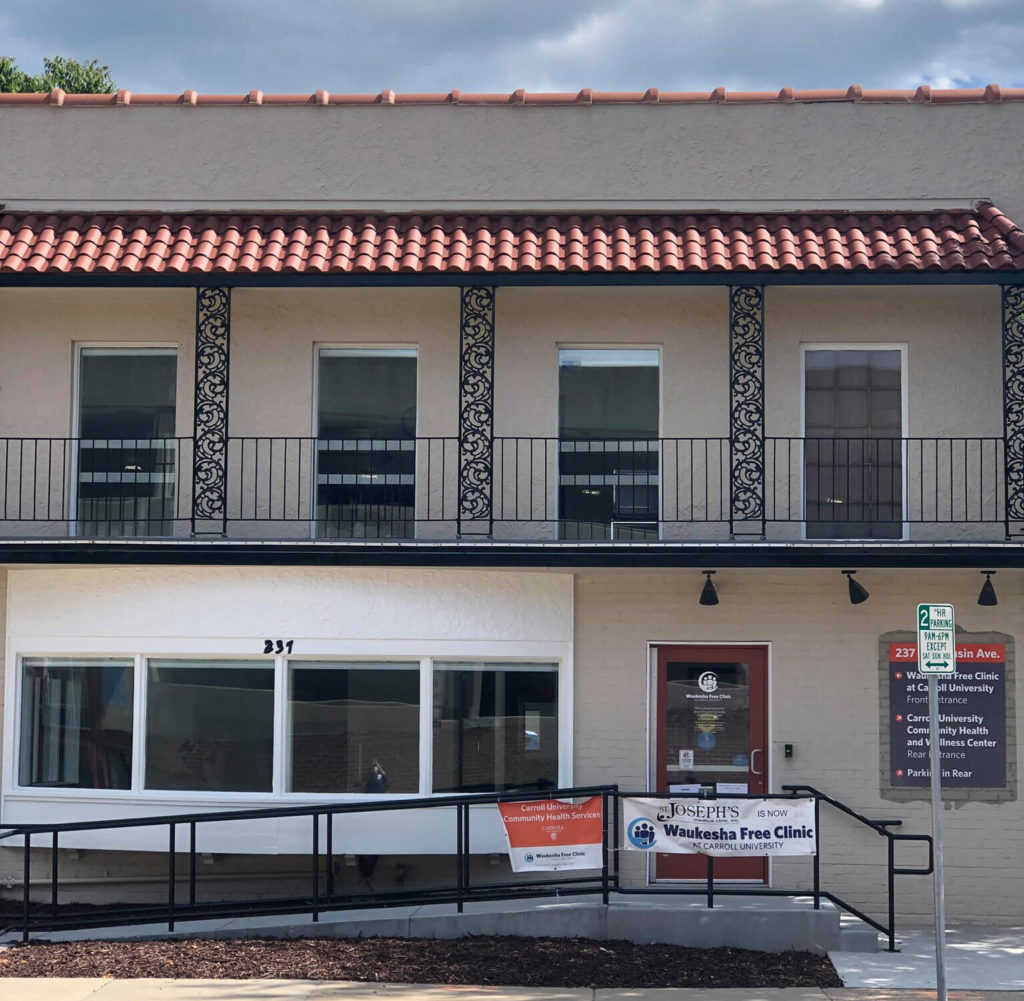Staff, volunteers provide care to the most vulnerable
St. Joseph’s Medical Clinic — now Waukesha Free Clinic (WFC) — has provided free medical care to underinsured or uninsured people in Waukesha for more than 40 years, operating out of clinic space at St. Joseph’s Parish in downtown Waukesha.
Three years ago, realizing that the number of patients was increasing and that the space they were in was not sufficient to meet the growing needs of the community, WFC staff and volunteers initiated a capital campaign to raise funds for a new facility.
WCCF was pleased to partner with WFC in managing the pledges for the new clinic through a project fund held at the Foundation. Collaboration with other entities is important to WFC, and they soon connected with Carroll University on the project.
It was important to WFC leadership that the clinic stay in downtown Waukesha, in order to be convenient to its patients, so the university bought a building at 237 Wisconsin Avenue, only four blocks from the original clinic. Funding for renovation of the space came partly from a Community Development Block Grant, with remaining funds coming from community donors.
Construction began in 2019 and clinic staff and volunteers were able to move into the new space in April 2020. The new clinic space is now fully handicapped accessible, has a larger waiting room, and has double the number of exam rooms as the former space.

About the WFC and its services
WFC is a primary care provider and offers three general clinics every week. In addition to three general medicine clinic times per week, specialty clinics, such as for diabetes, physical therapy, and podiatry, are also available and allow for individualized support for vulnerable patients with a specific or chronic diagnosis. For example, in diabetes support clinics, patients receive insulin, prescription medications, medical supplies and lab referrals – all at no cost.
With the increased space staff and volunteers would like to increase the number of general and specialty clinics offered each week. The diabetic support clinic has already been increased from two days to four days per month.
The clinic has one full-time clinic nurse, who manages the clinic, and 2 part-time nurses. A network of volunteer doctors, nurse practitioners and physician assistants provide care to general medicine and specialty clinic patients. Volunteers support the clinic with around 60 total hours of time per week.
As a part of the collaboration with Carroll University, students in the nursing, physician assistant, physical therapy and occupational therapy programs work with WFC volunteers to provide care to clinic patients.
Patients of the WFC must be residents of Waukesha County or must work or attend school in the county. Patients are screened for financial eligibility at 300% federal poverty guidelines or less.
For example, in 2020, a household of two people with an income up to $50,730 per year or $4,228 per month before taxes would qualify. The clinic is not part of BadgerCare, Medicaid, Medicare, Insurance Marketplace, or other public insurance programs.
Clinic staff and volunteers provide care to many of the most vulnerable members of our community. 46% of WFC patients are Hispanic; the clinic ensures that medical personnel attending them are Spanish speaking and culturally sensitive. Additionally, services are provided to patients experiencing homelessness; approximately 6% of clinic patients live in a shelter.
For more information visit the Waukesha Free Clinic website or follow them on Facebook.




